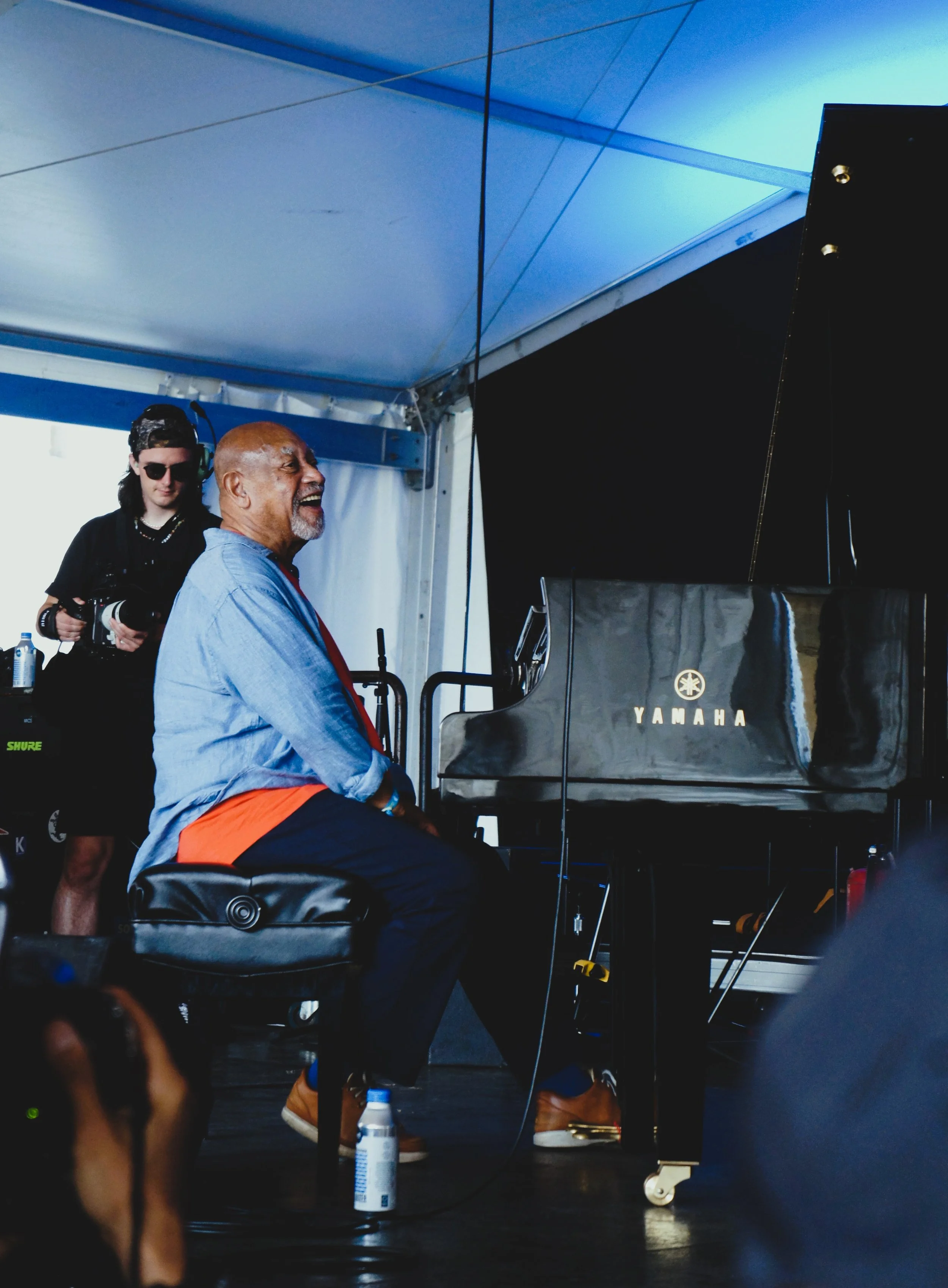Oscar worthy performance: Jeffrey Wright brought life to American Fiction
This past Sunday night, the Academy Awards honored the “best” in the movie biz during its 96th annual awards ceremony. Though the red-carpet arrivals are typically more interesting than the awards themselves (who doesn't love a good Oscars gown), this year there were several nominations that were worth watching out for. First time director and screenwriter Cord Jefferson won “Best Adapted Screenplay” for “American Fiction,” honors while “Oppenheimer" nabbed Best Picture, Best Supporting Actor, and Best Lead Actor and Actress awards (along with several others). Emma Stone and Da’Vine Joy Randolph were the only actors not cast in the movie “Oppenheimer” to win acting awards taking home the “Best Lead Actress” and “Best Supporting Actress” prizes respectively. There was one nominee not referenced above, however, who stood out for me this year: the uber-talented Jeffrey Wright who was up for “Best Lead Actor” for his work in “American Fiction.”
Wright starred as disgruntled author Thelonious "Monk" Ellison, a middle-aged, intellectually giant, but emotionally twerpy, African American man from Boston. The fact that he was named after one of the most enigmatic figures in jazz in Thelonious Monk and one of the greatest voices in African American literature in Ralph Ellison lays a very interesting foundation for the movie's lead character. The "Monk" of "American Fiction" is cerebral to a fault. In the early part of the movie his book publisher (played by John Ortiz) tries unsuccessfully to pitch the author's reworking of Aeschylus’s The Persians. Monk’s books are largely underappreciated seemingly because he’s not writing about the African American experience, but he doesn’t think he needs to write a “Black” book. Instead, he seems to think that readers need to expand their idea of what it means to be Black. In the movie’s opening scene, for example, Monk challenges one of his Caucasian students to get over her feelings about seeing the n word written on the board. The interaction ends with the student leaving the classroom in tears and Monk being placed on a mandatory leave-of-absence by his program heads. Eventually financial and familial obligations as well as a brush with an author named Sintara Golden (Issa Rae) - who saw nothing wrong with telling the Black story she believed audiences wanted to hear - force him to write a book so stereotypically “Black” that he finds himself hoping once the book is done that publishing houses would feel the metaphorical middle-finger he and the film’s screenwriter were likely raising together slowly rise from the novel’s pages as they read (Monk used the pseudonym Stagg R. Leigh/Stagg R. Lee, the name of a real-life historic African-American pimp who took his name from a riverboat known for hosting prostitutes. In the movie, Stagg R. Lee was said to be an escaped con). Instead, the book had quite the opposite effect: Monk experienced his first critical success. The novel that garners book and movie deals which allow him to experience the acclaim that has eluded him for much of his career and the financial security that allows him to step in to provide care for his elderly mother (Leslie Uggams) is the book that intensifies his inner turmoil. Watching Wright wrestle with that turmoil, watching him toy with publishers to see how much they’d accept from him while also admonishing his new girlfriend (played by the brilliant Erika Alexander) to the point of forced isolation was so nuanced that it’s easy to forget that you’re watching a character.
"American Fiction" was adapted by the film's director and screenwriter Cord Jefferson from author Percival Everett’s 2001 novel Erasure. During Sunday night’s Oscars ceremony, when Jefferson gave his speech for the Adapted Screenplay award and when he spoke during the post-Award question and answer event, he implored studio houses to tell more diverse “Black” stories that didn’t include drug dealers, slaves, or gangsters. He pointed out that there are a lot of creators who are looking for opportunities and that studio houses should take a chance on telling different stories. This is what I imagined Monk would have said in his final speech when he revealed himself to be Stagg R. Leigh during the awarding of the coveted literary prize at the end of the movie. And that is a shared nuance of the written and performed art of storytelling: sharing one’s truth and stepping aside to allow others to digest what’s before them. Bravo, Academy Award nominated actor, Mr. Jeffrey Wright.
Note: the performances in this movie were beautifully done. Writing a review of the entire film and all its pieces was a greater challenge than I was ready to accept (there was so much to digest!), but know that Sterling K. Brown, Tracee Ellis Ross, Ortiz, Rae, Uggams, Myra Taylor, Raymond Anthony, and Adam Brody were phenomenal.







